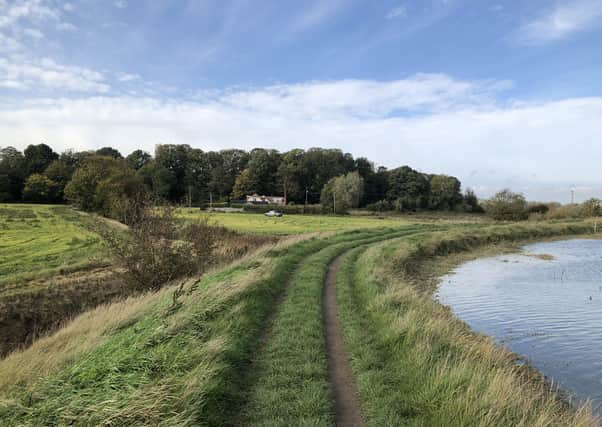Council plans to buy farm next to River Adur and turn it into natural habitat signed off


Adur District Council is in advanced talks to buy Pad Farm – a stretch of arable farmland on the western banks of the River Adur, north of the A27 – from current owner Ricardo.
It plans to encourage biodiversity at the site and strengthen its role in flood defence plans by turning it back into salt marsh.
Advertisement
Hide AdAdvertisement
Hide AdSalt marshes are important habitats for many rare and unusual species of plants, birds and animals which have adapted to living in an environment that is regularly covered by tides.
They help protect the land around from flooding, in addition to being a natural source for capturing climate-changing carbon gases.
The purchase, due to cost around £324,000 in total, was approved by the council’s joint strategic committee on Tuesday night (December 1).
Neil Parkin, Adur’s leader, said he had received lots of positive feedback since the similar purchase of nearby New Salts Farm in September.
Advertisement
Hide AdAdvertisement
Hide AdHe added: “It’s something rather special we have latched on to when these opportunities arrive and it keeps the land for future generations.”
According to a council report, officers have reached initial agreement with Ricardo Plc to buy the piece of land.
The report notes that Adur has committed itself to a programme of climate change action and protecting natural habitat as well as declaring a climate emergency in 2019 and pledging to become a carbon neutral authority by 2030.
It also states that both Pad Farm and New Salts Farm could offer a net gain toward flood defence plans for the area, as the development of homes at the Western Harbour Arm has resulted in a small loss of mud flats.
Advertisement
Hide AdAdvertisement
Hide AdWhere development cannot avoid some loss of natural habitat, compensatory payments make it possible to develop green space schemes elsewhere such as Pad Farm and New Salts Farm.
Before the meeting, Ian Gibson, Ricardo plc chief financial officer, said: “I am delighted to have completed this transaction. It shows that the public and private sector can work together for the benefit of the local community and the environment. We look forward to seeing the habitat developing.”
The council’s executive member for the environment Emma Evans added: “I am delighted to be moving ahead with this project. Coming so soon after our purchase of New Salts Farm it proves this council is taking the protection of our natural resources seriously. Not only that but, by turning these sites back to their natural habitat, we are also helping to reduce the flood risk and increasing biodiversity, ensuring plants, animals and birds can thrive.
“We are working hard to strike a balance between creating much needed new homes for people who want to live here and the protection of our environment, in particular the Adur estuary environment. These two large pieces of land will now be protected from development and add to our natural estuarine riches for generations to come.”